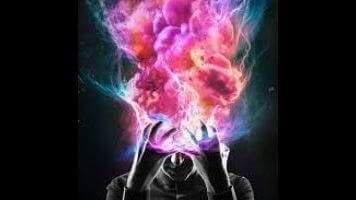Legion tells a human story without giving up its superpowers

Netflix has been methodically filling out its corner of the Marvel Cinematic Universe—namely, Hell’s Kitchen, where Daredevil is bound to meet Jessica Jones, Luke Cage, and Iron Fist. That team-up was all but preordained, and not just because of the comic book sources. Melissa Rosenberg and her fellow showrunners have to keep up with their big screen counterparts, who are always finding a way to bring together (or drive a wedge between) the Avengers. That interconnectedness often delights the viewer, but laying the groundwork for another story sometimes comes at a cost to the one currently unfolding.
So it’s no wonder that for his take on superheroes—or rather, an “un-superhero” superhero show—Noah Hawley would avoid that obligation to build the world of Legion. Beyond the acknowledgment that the series ties into the X-Men films, this sci-fi drama/psychological thriller is mostly untethered to other properties and characters. The connection to Charles Xavier and his gifted youngsters is just part of its provenance. David Haller’s (Dan Stevens) on a journey “home,” but it isn’t likely to lead back to his mutant dad—at least, not anytime soon.
As he’s established with his other famous adaptation, Hawley thrives in a gray area; it wasn’t until he had free rein in the Coens’ Fargo land that he broke out as a TV producer. For that anthology series, Hawley said he wasn’t looking to add chapters to the lives of the original film’s characters—he was more interested in the feel of the place, in the stories to be mined from ordinary people in extraordinary circumstances. That spirit very much carries over into Legion, which exists in a similarly nebulous region that’s even better suited to the material.
David might be the most powerful mutant, or he might be a young man with a mental illness. Though the evidence leans in one direction more than the other, viewers shouldn’t get too comfortable with what they think they’ve seen or heard. Hawley’s mind is playing tricks on us. The sonic layers made up by the soundtrack, voiceovers, and dialogue are as disorienting to the viewer as David; try to filter one out to understand the other, and you could miss out on something important. The sounds of family members, lovers, and friends invade David’s thoughts throughout the series, and it isn’t always clear whether the remembrance will do more harm than good.
Those possibly faulty recollections and his initial diagnosis position David as an unreliable narrator, a construct that could easily be leaned upon to spur on the show’s mind-bending qualities, not to mention the mystery plot. But here it’s transcended by the writing, direction, and, above all else, Stevens’ performance. The former Downton Abbey actor shows utter conviction while wearing David‘s pain, frustration, and optimism—whatever is happening, whatever will happen, you believe David thinks it’s real. His physicality is striking, too; Stevens has a rigidity that switches deftly from tensely coiled to recoiling at the sight of some new horror (which might only exist in his imagination).
Legion’s visuals, with their sharp contrast and brightness, could be snapshots of important moments in David’s life: his first bike ride, graduation, and involuntary commitment to a mental facility. But in Hawley’s hands, they’re also deceptive in their focus, because there’s a mystery element to Legion’s proceedings. Like David’s memories, the story is a mosaic, pieced together in a way that’s far from seamless. Which isn’t to say that Hawley’s psychedelic vision for the series—he’s repeatedly invoked Pink Floyd as inspiration—is incomplete. The kaleidoscopic template isn’t just a flourish, or a demonstration of Hawley’s skill. It allows us to see the world David as does: with a clarity that, once achieved, is all too easily disturbed.
Even what’s familiar is of no real comfort, because the music, the clothes, even the people and events that make up David’s life come from various eras, leaving the viewer with only a vague sense of when this is all occurring. Hawley intentionally avoids dating the show with specific models of cars, and while the hairstyles and clothing suggest the ’60s, a stray reference to CNN upends that. That pop culture hodgepodge is designed to leave David (and us) without a firm place to stand on.
Once again, Hawley’s been allowed to let his imagination run wild, but Legion is more than a stunning visual and technical accomplishment. At the center of all this technique is a group of outsiders, and the people who want them to either fit neatly into a box, or otherwise exploit them. The mental illness isn’t just a ploy; it’s an ongoing concern that’s treated respectfully. But it does tie into philosophical quandaries, like the question of whether you are more in control or less imperiled if, as David possibly comes to find out, you’re not the problem.
The show also has one of the most affecting, unconventional love stories in the budding romance between David and Syd (Rachel Keller). And, of course, all this would mean nothing without a great supporting cast, which includes Jean Smart, Aubrey Plaza, Katie Aselton, and Bill Irwin. Legion is a dazzling and unusual show—full of extraordinary beings and events—but at its core are the same recognizable, human qualities that Hawley’s previously stretched to the limits.
Reviews by Alex McCown-Levy will run weekly.